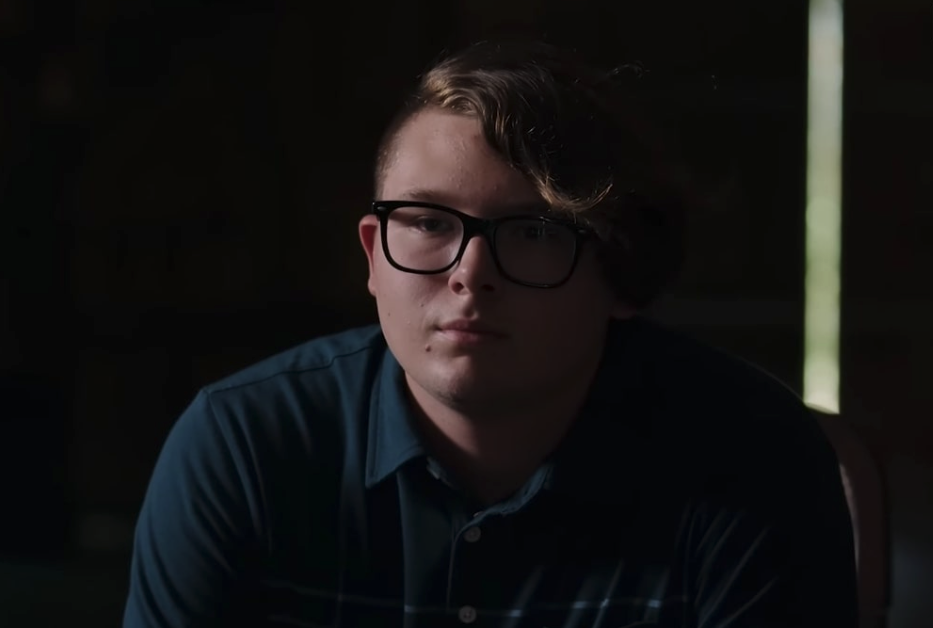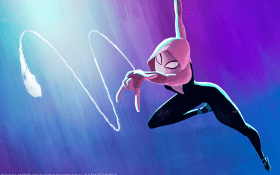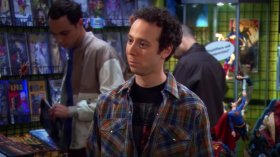On 3 June, 2019, 17-year-old Anthony Templet calmly called 911 and explained: ‘I just killed my dad.’ Immediately, people sensed something was off.
As we hear in the 911 recording, and see in the video of Anthony’s first police interview, he doesn’t seem upset or agitated; there’s no crying or yelling, or even elaborate self-justification. Anthony succinctly answers questions, saying no more than he needs to, and meekly does whatever he’s told.
This went against everything that experienced police detectives and district attorneys knew about how self-defence or criminal intent tend to manifest in someone. And then, of course, Anthony had admitted to the crime. So, how could he be anything but a cold-hearted murderer?
‘The scariest thing about Anthony is that he’s just kind of a blank slate,’ says assistant district attorney Dana Cummings, remembering her involvement with the case. ‘I don’t know if he has empathy.’
But documentary-maker Skye Borgman is more interested in whether viewers have empathy. From this starting point, Borgman’s three-part Netflix documentary series I Just Killed My Dad unravels a much more complex and ambivalent tragedy whose trail of victims ended with Anthony’s father Burt Templet.
As Anthony himself explains in an interview with Borgman a year after his crime, he had no idea what would happen to him after his father’s death – although to anyone with even a passing understanding of murder in popular culture, the chain of events is obvious.
Instead, touchingly, Anthony remembers thinking that once he’d told the police everything, he’d be free to leave.
Borgman doesn’t linger on this moment, but it’s an early sign that something was badly wrong with the way Anthony was raised. Anthony’s flat affect, passivity and caginess are revealed as self-protective responses to living with an unpredictable, violent, intensely controlling man who kept the teenager deliberately ignorant, afraid and isolated from anyone who could rescue him.
Weirdly, Anthony couldn’t tell police his home address in a quietly middle-class suburb of Baton Rouge, Louisiana, or even his birth year. Elena Fennell, who worked alongside Anthony at a local plant nursery, found it strange that he didn’t understand pop-cultural references, or know how to high-five.
So, this series isn’t so much about Anthony’s crime as that of his father Burt Templet, who was 53 when Anthony killed him. It’s about how family violence flies under the radar, and how easily abusers can manipulate the justice system and hide within social conventions.
This is the third true-crime documentary Borgman has made for Netflix, after 2017’s Abducted in Plain Sight and Girl in the Picture, which released just last month. She’s increasingly made true crime her career focus, and what sets her work apart is its gentleness in what can often be a prurient and pitiless genre.
The women in Anthony’s life emerge from under Burt’s suffocating control in Borgman’s interviews: his mother Teresa Thompson, grandmother Patricia Jenkins and stepmother Susan Templet. All of them loved Anthony and did their best for him. We also meet genealogist Shayna Landry, whose command of DNA databases and public-records research helped reconnect Anthony and Teresa.
Another connection Borgman makes, which I really enjoyed, was the relationship between Anthony and his defence lawyer, Jarrett Ambeau. Unlike so many participants in the United States legal system, Jarrett sees himself as an institutional outsider and defends other outsiders. And because of his own tough Louisiana upbringing, this confident Cajun was drawn to Anthony’s situation: he recognised Anthony as a fellow survivor.
However, the humanity of this traumatised young man – as well as that of the people who fought for him – emerges only mutedly from the rigidly codified true-crime series format, like sunlight through grubby glass. The people and the story are fascinating; but as craft, it isn’t special. Or perhaps its themes are too subtle for the blunt tropes of true crime TV – the interviews, the re-enactment sequences, the staged hugs and tears.
Did it even need to be a series? I binged the whole thing in one feature-length session, which made me ponder how much Netflix – and other networks and streaming services – relies on this kind of meat-and-potatoes content to bulk out its catalogue.
Anthony is both a compelling and a frustrating subject, because his abuse has numbed what his stepmother Susan remembers as a bubbly, witty childhood personality. Like the antithesis of a reality-TV participant, he has zero charm and seems almost palpably awkward in interpersonal situations. That’s why the documentary’s finest moment is a long, silent take at the very end, as Borgman conveys what true justice means to Anthony: his stoic mask finally cracks, and he fights for composure.
I Just Killed My Dad
Producers: Katherine Linton, Conor McCarthy
Executive Producers: Dirk Hoogstra, Nicole Sorrenti, John Jones, Patrick Rogers
Director: Skye Borgman
I Just Killed My Dad is now streaming on Netflix
Actors:
Director:
Format: Movie
Country:
Release:





